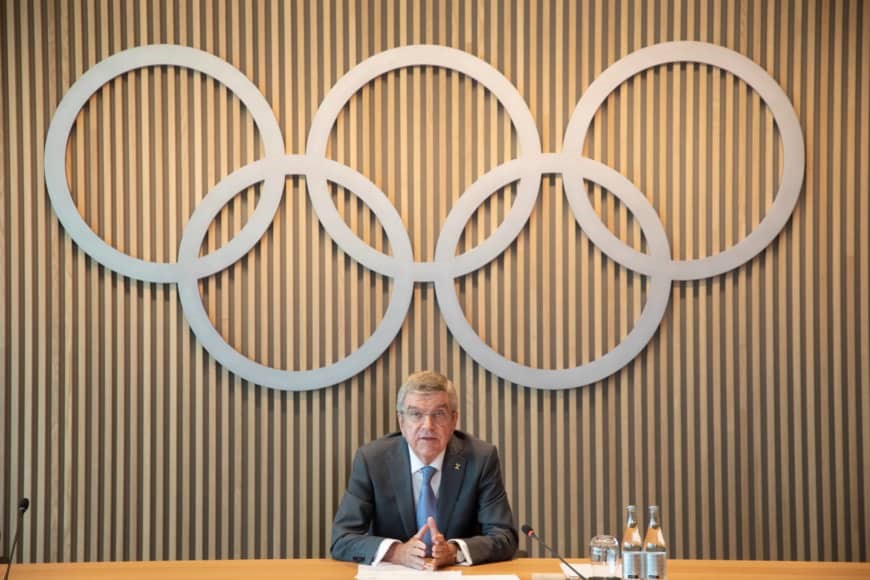Tokyo 2020 organizers aim for a simpler, cheaper Summer Olympics

(The Japan Times:JUN 11, 2020) Simplicity is what Tokyo 2020 organizers say they are aiming for as they continue to map out a strategy for the Summer Olympics.
The Tokyo 2020 organizing committee presented a progress report during a meeting of the International Olympic Committee Executive Board on Wednesday, with the simplification of the coronavirus-delayed games a key tenet of their plans.
Organizers are looking to reduce costs associated with the one-year postponement of the games by scaling down the usually extravagant sporting event.
"The main idea is the simplification of the games which are going to take place next year," Tokyo 2020 President Yoshiro Mori said during a news conference Wednesday night. "We explained the principles as well as the roadmap for the reorganized games."
Speaking later during a teleconference, IOC President Thomas Bach expressed his approval.
"We have already seen great progress even in the short time since the last executive board meeting," Bach said. "This in particular with regard to simplify and reduce the complexity of the games and in this way reduce the cost of the games."
The Summer Games were postponed on March 24 as COVID-19 cases surged around the globe. Originally scheduled for this summer, the 2020 Olympics will now take place next year from July 23 to Aug. 8. The Paralympics will be held from Aug. 24 to Sept. 5.
In April, Kyodo News reported additional costs stemming from the postponement are estimated to be around ¥300 billion ($2.7 billion).
Tokyo Games CEO Toshiro Muto said organizers would review games-related activities and services to determine what is essential and what can be cut.
"We are in the process of identifying more than 200 items where simplification opportunities will exist," Muto said, without citing any specifics or examples.
Bach, during his teleconference, referred a question about the issue to Christophe Dubi, the IOC Olympic Games Executive Director.
"Which service levels are absolutely necessary versus those we can simplify?" Dubi said. "You change a parking lot to a drop-off and it makes a huge difference in the space, in the security that you have to have around your parking lot."
Dubi also hinted it could be a matter of quality vs. quantity.
"Do we need all the space? Do we need all the goods and services," he said. "From previous games, we've seen that sometimes we over-plan and underconsume."
Tokyo 2020 organizers also laid out a six-phase roadmap to next summer, which includes plans to consider countermeasures against the coronavirus.
"We will closely monitor the situation, we will have close consultation with the IOC, and this direction was confirmed in this meeting as well," Mori said in reference to the coronavirus.
While Mori and Muto spoke about simplifying the games, they referred a question about the potential of athletes protesting during the Tokyo Olympics to the IOC.
The issue has been brought to the forefront following the protests against racial injustice that were sparked in the wake of the death of George Floyd, a black man who was killed when a white police officer knelt on his neck for over eight minutes in Minneapolis.
Many athletes have spoken out or joined in protests around the world since Floyd's death on May 25. In Germany, some soccer players have taken a knee, mimicking the protest former San Francisco 49ers quarterback Colin Kaepernick introduced in the NFL in 2016.
While the IOC bans such displays, Bach said he was open to hearing a proposal from the IOC Athletes' Commission on the issue.
"We have fully supported the initiative of the IOC Athletes' Commission to have a dialogue with their counterparts, the athletes, from around the world to explore different ways on how Olympic athletes can express their support for the principles enshrined in the Olympic charter in a dignified way," Bach said.
"We also agree, at the same time, with the athletes commission, that we must always respect the Olympic spirit. This means we must make a difference between such support for the principles enshrined in the Olympic charter and potentially divisive demonstrations."



